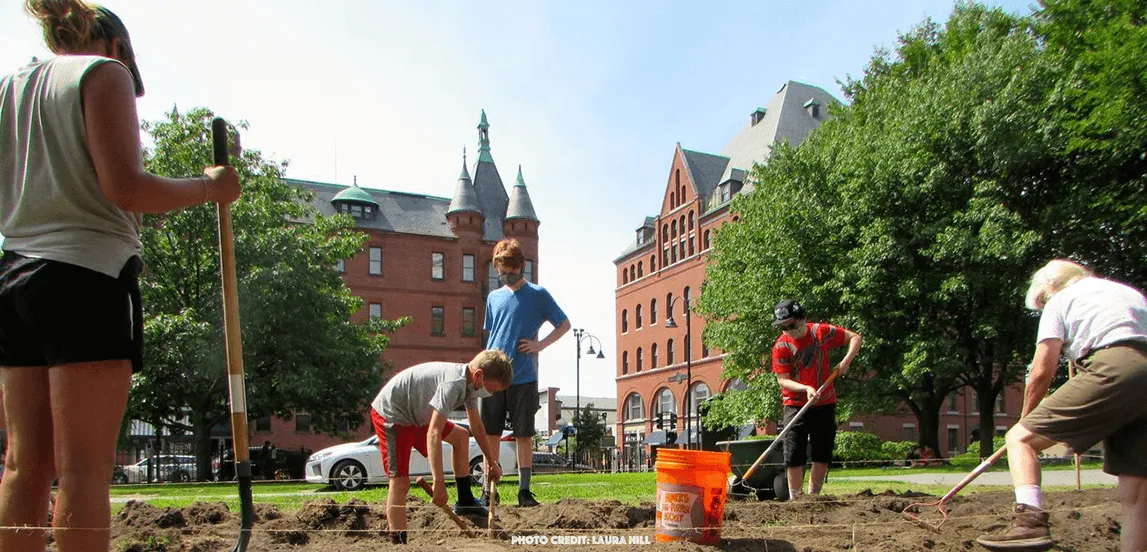Laura Hill had been excited about moving into her Old North End home a few years ago. But the plant biology scholar found an unwelcome surprise.
Lead had seeped into the soil surrounding her new Burlington home. Tests showed levels as high as 1,400 parts-per-million, far above a desirable level.
“I knew I had to do something,” said Hill, a senior lecturer in the Department of Plant Biology.
So, she began researching plants capable of taking heavy metals up from the soil. That process is called phytoremediation, in which plants remove heavy metals from the soil by their roots and store them in areas like stems and leaves.
Hill settled on two plants — the sunflower and hemp — and in spring 2019 decided to turn her home-improvement project into a research project for students.
She talked to a class about the idea. A hand went up. Mariah Cronin, a junior that semester, volunteered to help and soon they got to work.
“We prepped the site, we planted the plants, we took care of the plants, we extracted the plants and before and after we took soil tests and measured the amount of lead,” Hill said. “I was sort of like the initiator, and then I stepped back, and I let Mariah and other undergraduates help throughout the project as well and execute the science.”
The team took soil samples before the plants were planted (around June 2019) and after they were uprooted (around October 2019), then analysed the data over that winter with collaborators in the Department of Geology. Cronin presented their findings at the Student Research Conference. Their experiment ultimately showed sunflowers did a better job of removing heavy metals from the soil.
“Part of the project was just kind of basic science and saying if this worked,” Hill said. The other part, she said, was to help locals learn about phytoremediation for themselves.
After the hard science ended, the team began reaching out to the community, specifically the Old North End, where lead poisoning of soil was a big problem.
“We initially were going to give out free sunflowers and have demonstrations and a booth at the farmer's market,” Hill said. But the Covid-19 pandemic hit, “and then everything just stopped. So, we put that on hold.”
That outreach fired back up this past spring. Cronin, who has since graduated, decided to stick around, and keep working on the project. She, Hill and the other student researchers collaborated with the Unitarian Universalist Church on Church Street by planting sunflowers in their garden plots. They also worked with Burlington’s Community Economic Development Office to print out brochures, and they put together social media and publicity campaigns.
The research project has come to an end, but the outreach continues. Lead poisoning in the Old North End remains a problem, and Hill wants to do more events and programs next spring and summer. She already has brochures and sunflower seed packets ready to hand out.
What’s the ultimate goal?
“That people recognize there is an issue with lead contamination in the soils in our neighbourhood, and there is a sort of beautiful and easy way to take care of it,” she said, “which is to grow sunflowers.”
Hill teaches courses on botany, biology, and genetics. This fall she is teaching courses in the BioCore Curriculum — an interdisciplinary series of biology courses run jointly by the Colleges of Arts and Sciences and Agriculture and Life Sciences.
